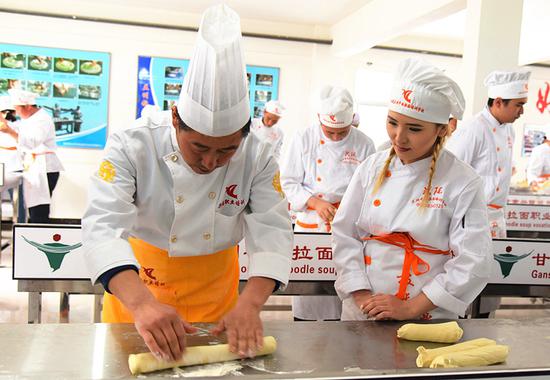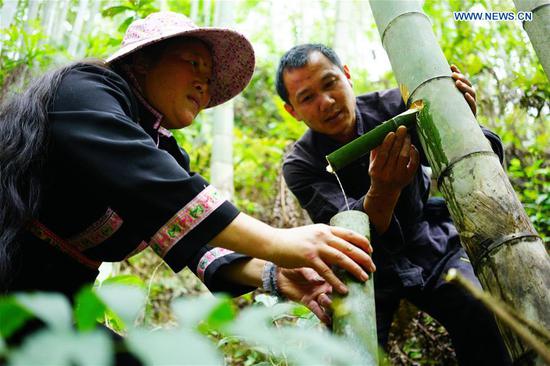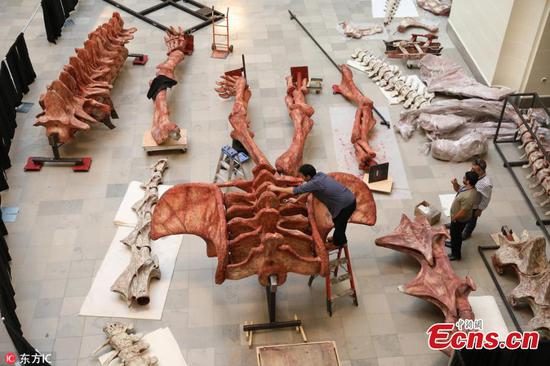
A chef shows a student how to flatten dough using a rolling pin at the school. (Photo: Xinhua/Wang Peng)
A project launched to raise employment levels among poor rural women by teaching them how to make a popular noodle soup has become a surprise hit with ambitious young Chinese educated at universities overseas.
A three-month, women-only course opened last month at the Xinglong Beef Noodle Vocational School in Lanzhou, capital of Gansu province. It covers every aspect of running a restaurant specializing in Lanzhou lamian, a popular traditional dish, from preparing the ingredients to serving customers and cleaning.
Lanzhou lamian-a clear broth containing sliced beef, radishes, cilantro, chopped scallions, chili oil and handmade noodles-is arguably China's most popular fast food. More than 30,000 outlets sell the dish nationwide, generating combined revenue of about 60 billion yuan ($9.3 billion) last year.
The sector is dominated by men, especially in the kitchen, which some attribute to the strength required to knead and hand-pull the flour noodles. To address the gender imbalance, and equip women from underdeveloped areas with the skills to start their own businesses, the Gansu branch of the All China Women's Federation joined with the school to offer the 90-day course.
Nearly 100 women signed up, including Mao Wenjun and Bao Yuzhi, both Lanzhou natives who study abroad.
"My dream is to start my own business, and learning how to make Lanzhou lamian takes me one step closer to that dream," said Mao, who recently graduated from Rutgers University in the United States with a degree in public administration.
The 27-year-old plans to put the skills to use overseas, where there is a growing market for Chinese fast food such as beef noodles.
Bao has a similar ambition. The 26-year-old, who is studying for a master's in biological engineering at the University of Melbourne, wants to open a restaurant in the Australian city to share her hometown's traditional culture and cuisine.
"I want to deliver my passion for cooking lamian to Australia to help more people there get a taste for the dish," she said.


















































